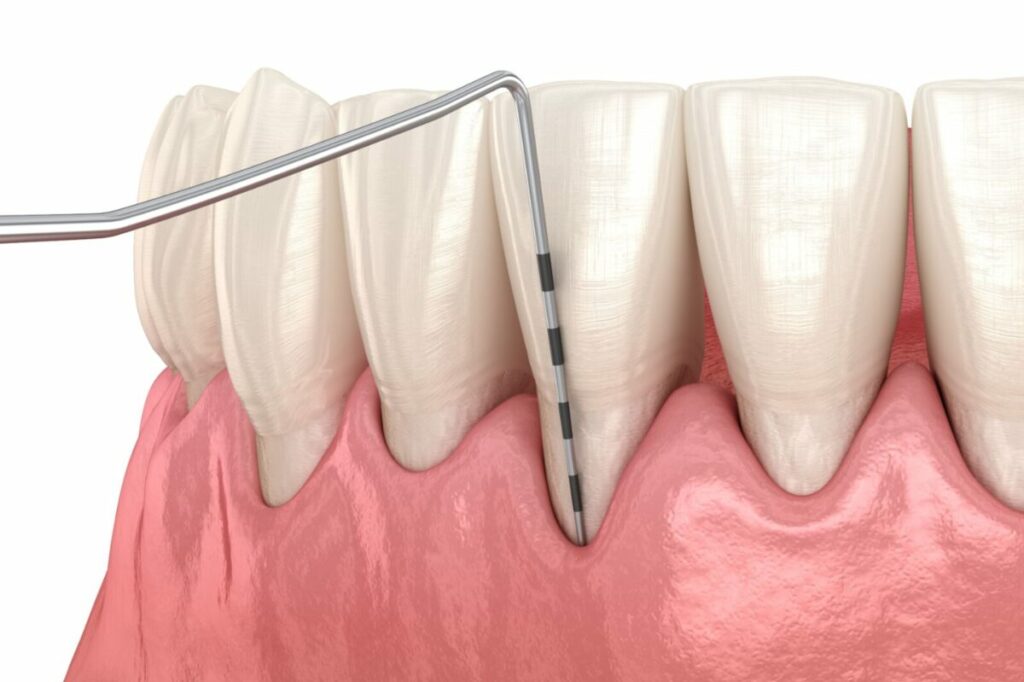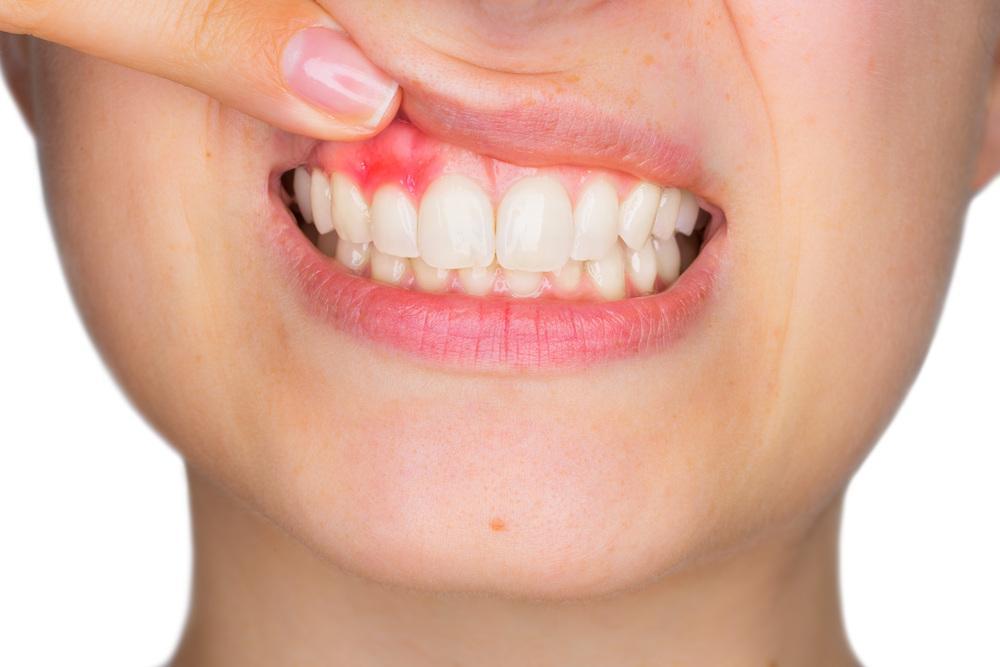Do you experience discomfort and sensitivity when consuming hot or cold foods? This may be due to gum recession sensitivity, where the gums recede or pull away from the teeth, exposing the roots. Gum recession can occur due to poor dental hygiene, excessive brushing, genetics, age, and certain medical conditions. Fortunately, there are effective Gum Recession Sensitivity Treatments available to alleviate these symptoms and promote gum tissue regeneration.

Gum recession sensitivity can cause pain and discomfort affecting your daily life. However, there are several treatment options available to alleviate this issue. This article will discuss the causes of gum recession sensitivity and how to recognize its symptoms. We will also explore at-home remedies and professional treatment options to help relieve your discomfort and prevent further damage to your gums. Finally, we will provide tips on preventing future gum recession and sensitivity issues.
Understanding Gum Recession and its Causes
Do you ever wonder why your gums are receding and causing sensitivity? Well, let’s explore the root causes of this common issue. Gum recession occurs when the gum tissue surrounding teeth wears away or pulls back, exposing more of the tooth and sometimes even the root. This can cause discomfort and sensitivity to hot or cold temperatures and make teeth appear longer than average.
Gum recession prevention is crucial in avoiding further damage to your oral health. Some common causes of gum recession include aggressive brushing techniques, periodontal disease, genetics, hormonal changes, and tobacco use. Proper oral hygiene practices such as gentle brushing with a soft-bristled brush and flossing daily can help prevent gum recession. Additionally, regular check-ups with your dentist can aid in the early detection and management of this issue to avoid complications.
Recognizing Symptoms of Gum Recession Sensitivity

You can quickly identify if your gums are receding by looking for visible notches or gaps between your teeth. Gingival recession is often accompanied by tooth sensitivity and pain. So, if you experience discomfort while eating hot or cold foods, it might indicate gum recession sensitivity.
Here are some symptoms that may help you recognize gum recession sensitivity:
- Bleeding gums when brushing or flossing
- Bad breath
- Loose teeth
- Swollen and red gums
- Painful chewing
If you notice any of these symptoms, don’t ignore them, as they could indicate serious oral health problems. Consult your dentist immediately to get the proper treatment for gingival recession and tooth sensitivity.
At-Home Remedies for Gum Recession Sensitivity
Let’s explore some simple and effective ways to soothe your sensitive gums at home. One of the most popular methods is to use herbal remedies such as aloe Vera, chamomile tea, or peppermint oil. Aloe Vera contains anti-inflammatory properties that can help reduce swelling and pain in your gums. You can apply a small amount of aloe Vera gel directly onto the affected area or rinse your mouth with an aloe Vera juice solution.
Another way to alleviate gum recession sensitivity is by making dietary changes. Incorporating foods rich in vitamin C and calcium can promote healthy gum tissue growth and strengthen your teeth. Some examples of vitamin C-rich foods include oranges, kiwis, strawberries, and broccoli. Calcium-rich foods include milk, cheese, yogurt, leafy greens like kale or spinach, and almonds. Additionally, avoiding sugary drinks and snacks can prevent further damage to your sensitive gums. By implementing these simple steps into your routine, you can manage gum recession sensitivity from the comfort of your own home.

Combatting the sensitivity that often accompanies gum recession requires a gentle and effective approach, and DIY oral rinses and mouthwashes offer a natural solution. Crafted from readily available ingredients, these homemade remedies aim to soothe discomfort and promote overall gum health. In this comprehensive guide, we’ll explore simple and effective recipes for DIY oral rinses tailored specifically for treating gum recession sensitivity. Discover how to harness the power of natural ingredients to create your own mouthwashes, providing relief and care for your gums in the comfort of your home. Elevate your oral care routine with these DIY solutions, offering a holistic and comforting treatment for gum recession sensitivity.
Professional Treatment Options for Gum Recession Sensitivity
If you’re experiencing discomfort due to gum recession, visiting a dentist or periodontist can provide professional solutions. Various options are available, depending on the severity of your condition and the cause of your gum recession. Here are some professional treatments that may be recommended:
- Laser therapy: This modern treatment uses a dental laser to remove diseased tissue and stimulate healthy tissue growth. The procedure is minimally invasive, with minimal bleeding and discomfort, and can often be completed in one visit.
- Gum grafting: A periodontist may recommend gum grafting if your gum recession requires more extensive treatment. This involves taking tissue from another part of your mouth (usually the roof of your mouth) and attaching it to the affected area to restore lost gum tissue. While this procedure may require several appointments and a longer recovery time than laser therapy, it can provide long-lasting results.
Remember that every case is different, so it’s essential to consult with a dental professional who can help you determine the best course of action for your individual needs.
Preventing Future Gum Recession and Sensitivity
By consistently practicing good oral hygiene habits and avoiding habits that can damage the gums, such as smoking or using a hard-bristled toothbrush, individuals may decrease their risk of experiencing future gum issues. Preventing trauma to the gums is also crucial in preventing gum recession and sensitivity. This includes avoiding activities that could result in direct impact or injury to the mouth, such as playing contact sports without a mouth guard.

In addition to avoiding harmful behaviors, you can adopt several healthy habits to prevent gum issues. Brushing twice daily with a soft-bristled toothbrush and flossing daily can help remove plaque buildup on teeth and along the germline. A balanced diet rich in vitamins A and C can also promote healthy gums. Regular dental check-ups are essential for catching any potential problems early on before developing into more severe ones. By taking these steps, you can help maintain healthy gums and prevent future gum recession and sensitivity.
Get more information about
Culmination
Congratulations! You now know how to tackle gum recession sensitivity like a pro. By understanding the causes and recognizing symptoms, you can take preventative measures and seek at-home remedies and professional treatments. But don’t stop there! Keep good oral hygiene habits to prevent future gum recession and sensitivity.
Remember: an ounce of prevention is worth a pound of cure. Don’t let gum recession sneak up on you – stay vigilant, take care of your teeth, and give your gums the TLC they need. Your bright smile will thank you!

As the saying goes, “An apple a day keeps the doctor away. “Just like eating an apple regularly can help maintain your physical health, taking care of your gums can ensure that your dental health stays in tip-top shape. Keep up with good oral hygiene practices, and don’t hesitate to seek out professional help when needed – it’s all about keeping those pearly whites shining bright!

